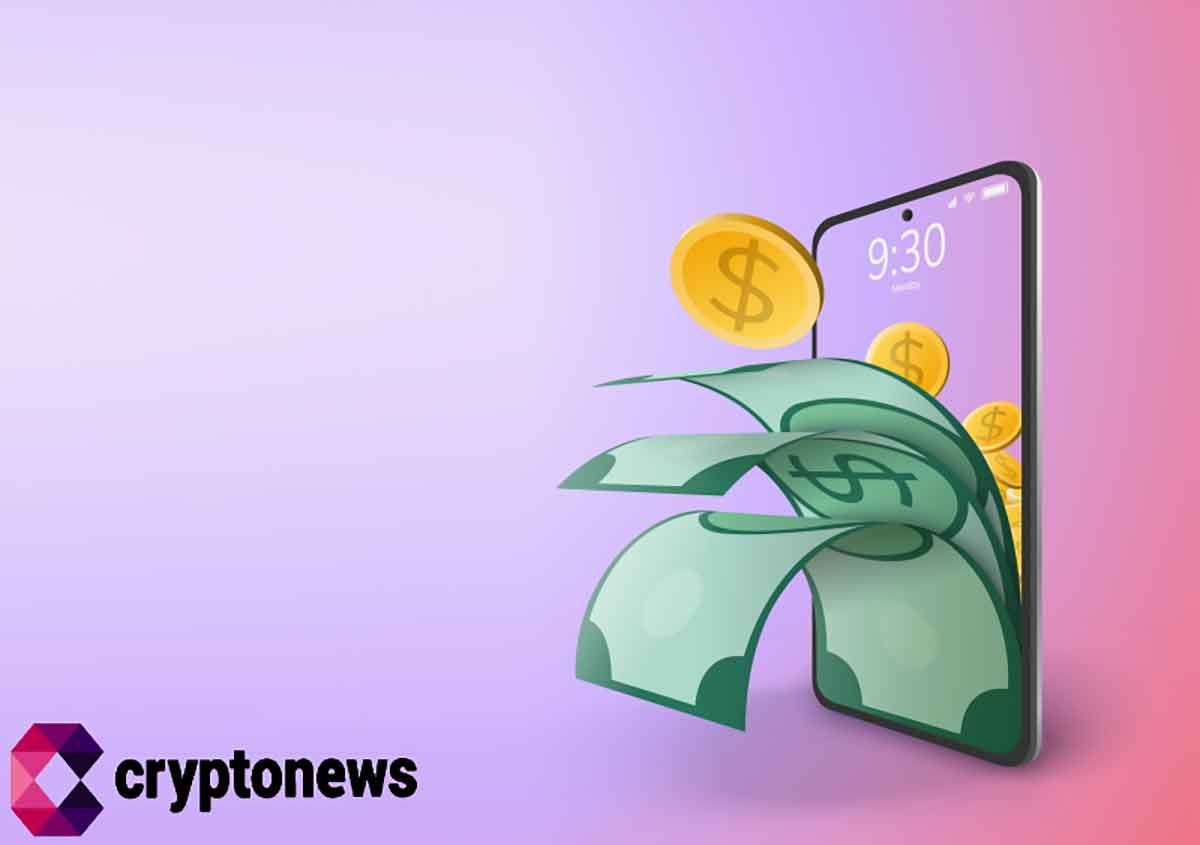Crypto Cashback Programs Mature to Drive Accessibility and Financial Inclusion

A recent report published by Bitcoin financial services provider Unchained found that 55% of 400 U.S. investors surveyed own Bitcoin.
Findings further note that 34% of those surveyed think Bitcoin will be the best-performing asset in 2024 in comparison to gold, the S&P 500, and fiat.Additionally, the recent spot Bitcoin Exchange Traded Fund (ETF) approval in the U.S. – coupled with Bitcoin’s fourth halving event set to take place in April – has created more desire among both retail and institutional investors to own Bitcoin.
While notable, the risks associated with buying Bitcoin may result in slow mainstream adoption. For instance, Unchained’s report found that 26% of non-Bitcoin-holders say their financial advisor or another trusted source telling them to buy Bitcoin is the factor that will push them to do so this year.
Crypto Cashback Programs Enable Easy Access
Although this may be the case for some, crypto cashback programs are enabling greater access to Bitcoin and other digital assets.
Alex Adelman, Founder and CEO of Lolli – a Bitcoin cashback rewards platform – told Cryptonews that as investors look to understand and gain exposure to cryptocurrency, platforms like Lolli can provide easy ways to earn and own Bitcoin without any risk or initial investment.
“Lolli users earn BTC every day simply by buying coffee, gas, or groceries, or playing mobile games on the app,” said Adelman. “By creating a regular habit of using Lolli to earn Bitcoin, we have made Bitcoin an integral part of people’s daily lives.”
Adelman explained that Lolli offers both in-store and online rewards at over 25,000 popular retailers like Adidas, CVS, Booking.com, and Ulta.
“Users can also win up to $100 or more in Bitcoin daily by playing mobile games featured on the Lolli Arcade within the mobile app,” he said.
Adelman added that some of Lolli’s top users have already earned over two Bitcoin, for a combined value of $100,000 at the time of writing.
Crypto Cashback Rewards Drive Financial Inclusion
Filipp Shubin, Co-Founder and CEO of Swoo Pay, told Cryptonews that he believes crypto cashback programs can also enable financial inclusion across developing countries.
For example, Shubin explained that Swoo Pay is a digital payment solution that allows users to make contactless transactions via their smartphones. He noted that Swoo’s goal is to drive financial inclusion across emerging markets by bridging gaps in accessibility and affordability.
In order to achieve this, Shubin mentioned that Swoo has partnerships with payment service providers, regional banks, and businesses to help catalyze financial inclusion across regions such as Africa and Southeast Asia.
Most recently, Swoo partnered with Mastercard to offer its users loyalty rewards in the form of cryptocurrency.
“Advertisers like Mastercard are depositing rewards to Swoo, known as ‘Swoo tokens,’” said Shubin. “Swoo platform then issues these loyalty tokens according to the budget and campaign mechanics set by Mastercard. User earns tokens for target actions, including purchases.”
According to Shubin, Swoo’s cashback program with Mastercard is an example of a “specialized program,” that differs from traditional cashback programs.
“Traditional cashback programs are typically run by individual card issuers, who leverage transaction data from their own card networks. However, this restricts the potential reach and audience for merchants seeking to promote offers,” he said.
Shubin noted that the main benefit of specialized cashback programs is the global reach. Yet these also enable unique experiences, like the crypto loyalty rewards offered through Mastercard.
“Users across the world can now engage in specific Web3 mechanics like tokenization, staking and decentralized exchanges to further engage users,” he said. “Moreover, there can be benefits from tax and legal regulations in emerging markets that view crypto rewards more favorably than traditional loyalty programs.”
An Alternative to Traditional Mobile Payments
Shubin added that many emerging countries Swoo operates in have limited access to leading mobile payment applications, like Google Pay. This can be detrimental, as statistics have found that 25% of all mobile payment transactions occur using Google Pay.
Denis Filippov, Country Manager for Mastercard, told Cryptonews that since most emerging regions have access to major credit cards, Swoo Pay is now able to solve these issues with tokenized payments for Android device users.
“Our collaboration is designed to provide additional innovative incentives for Swoo users in making everyday purchases,” said Filippov.
Shubin further noted that he believes that Swoo is introducing cryptocurrency to many Android users through its crypto cashback programs.
“This also engages more consumers to explore basic cryptocurrency functions like swapping, off-ramping to fiat, and transferring rewards,” he said.
Although Swoo’s program with Mastercard was announced on February 20 this year, Shubin shared that results have already been impressive.
“In just three weeks, users received 5% crypto cashback on all Mastercard purchases made through Swoo Pay. With just in-app promotion, over 17,000 participants made over 128,000 transactions, increasing card spend by 56% and introducing new consumers to crypto-backed rewards,” he said.
Crypto Cashback with Prepaid Cards
Ashish Khandelwal, Founder of Bengaluru-based financial technology organization Anq, told Cryptonews that he also believes crypto cashback rewards can accelerate mainstream adoption for virtual digital assets.
Given this potential, Khandelwal explained that Anq launched a prepaid card powered by Rupay – an Indian multinational financial services and payment service system – that offers users rewards back in virtual digital assets like digital gold and Bitcoin.
“The X Card is Anq’s flagship product. It redefines the prepaid card experience,” said Khandelwal. “It’s designed for an aspirational generation that values both flexibility and rewards, offering unprecedented returns in digital assets.”
Switch to Anq and build wealth while you spend.
Convert your current spends into financial freedom tomorrow. #KhushiyonKaSwitch #Bounties #Anq #ReturnOnSpends pic.twitter.com/ZGBTLW7RR5
— ANQ – India's most rewarding experience ! (@AnqFinance) February 1, 2024
Khandelwal added that the potential behind the X card is huge due to India’s booming prepaid card market.
Findings from The International Market Analysis Research and Consulting Group (IMARC Group) show that India’s prepaid cards market size reached $119 billion in 2022. This number is expected to increase to $759.2 billion by 2028.
According to Khandelwal, the X card can be used at over 65 million offline and online merchants in India. While he noted that Anq charges users a one-time fee of INR 1499, or about $18 at the time of writing, the company already has over 300,000 users.
“This innovation not only diversifies the rewards spectrum but also empowers consumers with the choice of investing in high-value assets like digital gold or Bitcoin simply with day-to-day spends,” said Khandelwal.
Challenges To Consider
Although offering crypto cashback rewards can be beneficial to both users and merchants aiming to grow their businesses, these programs may be difficult to implement.
For instance, Shubin pointed out that Swoo has partnered with Mastercard since 2012 on technical integrations and promotions.
However, he remarked that approving crypto incentives required several months of discussions with Mastercard’s legal team to ensure compliance.
Moreover, Khandelwal remarked that the volatility associated with virtual digital assets poses a risk of depreciation, potentially deterring participation.
He added that “regulatory uncertainties and the complexity of managing virtual digital assets can intimidate both businesses and consumers, while security concerns and the tax implications of virtual digital asset transactions add further challenges.”




